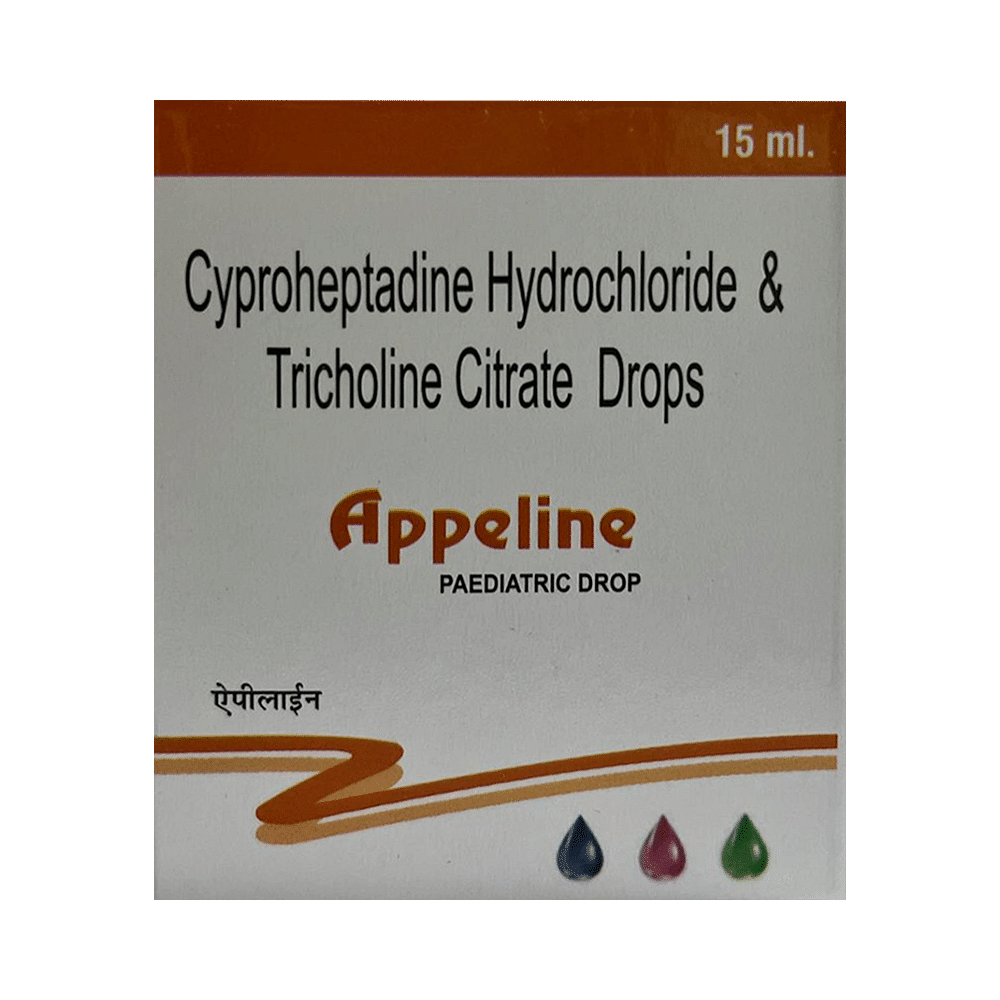
Aptipro Oral Drops
Manufacturer
Assure Pharma
Salt Composition
Cyproheptadine (1.5mg) + Tricholine Citrate (55mg)
Key Information
Short Description
Aptipro Oral Drops is a combination of cyproheptadine and tricholine citrate, used to stimulate appetite in children and treat allergic conditions.
Dosage Form
Oral Drops
Introduction
Aptipro Oral Drops is a combination of two active medicines, cyproheptadine and tricholine citrate. Together, these medicines help stimulate appetite (hunger) in children. It is also given to treat allergic conditions in children.
Directions for Use
Never increase or decrease the dose by yourself as the dose is prescribed based on your child's condition, body weight, and age.
How it works
Aptipro Oral Drops contains two medicines, cyproheptadine and tricholine citrate. Together, they stimulate the urge to eat (appetite). Cyproheptadine acts by reducing the effect of serotonin (a chemical messenger) in the hypothalamus, a part of the brain which regulates appetite. Tricholine citrate also helps in increasing appetite and spares amino acids for muscle enhancement.
Quick Tips
Dry mouth may occur as a side effect. Frequent mouth rinses, good oral hygiene, increased water intake, and chewing on sugarless candy may help. Aptipro Oral Drops can cause a bitter taste in your child's mouth. Eating a piece of citrus fruit or sugarless candy may help. Do not give Aptipro Oral Drops to increase your child's body weight under normal conditions. It is prescribed to treat malnutrition due to chronic illness. Call your child's doctor right away if your child exhibits allergic rash, facial swelling, or breathing difficulty soon after the intake of Aptipro Oral Drops.
Related Medicines

Cypon Drops

Appitize Oral Drops

Cyprodiv Oral Drops

Cipgo Oral Drops

Hunger Oral Drops

Cyprolive Oral Drops

Trycipzip Oral Drops

Appeline Oral Drops

Polynia-PD Oral Drops

Luxiton Oral Drops
Frequently asked questions
My child is having a long-term illness and is on medication. He is underweight with poor nutritional status and doesn't feel like eating anything. Can I give Aptipro Oral Drops?
Loss of appetite can be caused by certain medications. If given, Aptipro Oral Drops may help resolve this issue by boosting your child’s appetite and hunger, which in turn might improve their nutritional status. However, it is crucial to consult with your child's doctor before administering Aptipro Oral Drops as they will advise on the appropriate dosage and duration. It usually takes a few days to weeks for the effects to become noticeable. Make sure to inform your child’s doctor of any other medications your child is taking.
My child is restless and unable to sleep properly at night. Can I give Aptipro Oral Drops?
Aptipro Oral Drops may cause drowsiness as a side effect, but you should never use it to induce sleep in children. Consult your doctor for any queries regarding the use of this medicine or if your child's sleeplessness is causing concern. It could be due to an underlying medical condition.
How much Aptipro Oral Drops should I give to my child?
Always adhere to the dosage prescribed by your child’s doctor. The dose of Aptipro Oral Drops is calculated based on your child's weight and age. Never increase or decrease the dose without consulting your child's doctor, as this may lead to unwanted side effects and worsen your child's condition.
How should Aptipro Oral Drops be stored?
Aptipro Oral Drops should be stored at room temperature in a dry place away from direct heat and light. Keep all medicines out of the reach and sight of children to avoid accidental ingestion.
When do I need to call my child’s doctor right away?
Seek immediate medical attention in case of any confusion regarding dosage, duration, side effects, etc. Contact your child's doctor immediately if you notice any significant adverse reactions. These may include allergic reactions (such as facial swelling, difficulty breathing), signs of liver problems (such as dark-colored urine, yellow eyes or skin), excessive drowsiness, rapid heartbeat, hallucinations, feeling confused or hyperactive, trouble passing urine, irritability, and vision changes.


